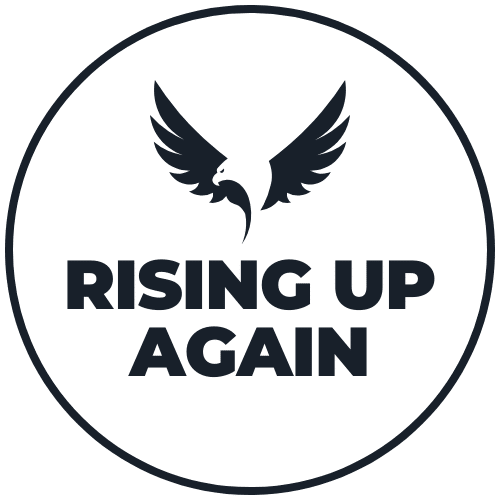Setbacks are part of life, especially in entrepreneurial life. When I look back, a few stories come to mind – not only my own experiences but also those of friends, business partners, and well-known names we know from the media.
However, what distinguishes those who give up after failure from those who emerge stronger?
Resilience and the courage to get back up are key factors.
In this article, we examine two tech founders who have achieved impressive success through their second chances – inspiring examples that show that failure is often just a stopover on the way to more incredible things.
The pain of failure
The failure of a company is not only emotionally stressful but often also brings financial losses and personal doubts. According to a study by the Startup Genome Report, 90% of all startups fail. The reasons are varied – from a lack of market adaptation to financial bottlenecks and internal conflicts1.
However, many successful entrepreneurs report that precisely these phases of setbacks laid the foundation for their later success.
How do you deal with the consequences of failure, and how do you reinvent yourself? This is where the journey of those who manage to get back up begins.
Entrepreneurial success stories
1. Elon Musk – From the disaster at Zip2 and X.com to the revolution in space travel
Before Elon Musk became known worldwide as the visionary behind Tesla, SpaceX, and Neuralink, he had to learn some hard lessons. His first company, Zip2, an online city guide, was sold to Compaq in 1999 for $307 million, but Musk had little control over the development of his company2.
He used part of the proceeds to found X.com, an online financial services provider. X.com later merged with Confinity, the company behind PayPal. Although Musk was replaced as CEO, the company continued to thrive and was sold to eBay for $1.5 billion in 20023.
The absolute low point, however, came in 2008: SpaceX was on the verge of collapse after three failed rocket launches, and Tesla was in serious financial trouble. Using his last financial reserves, Musk financed a fourth rocket launch, which was ultimately successful and led to a lucrative contract with NASA. Shortly thereafter, Tesla received a crucial financial injection that saved the company from bankruptcy4.
Today, Musk is seen as a symbol of perseverance and the willingness to take significant risks – qualities that distinguish between failure and groundbreaking success.
2. Whitney Wolfe Herd – From chaos at Tinder to founder of Bumble
Whitney Wolfe Herd began her career at Tinder, where she played a central role as co-founder and vice president of marketing. After internal conflicts and an out-of-court settlement of a sexual harassment lawsuit, she left the company and decided to implement her vision5.
In 2014, she founded Bumble, a dating app that encourages women to make the first move, changing the dynamics of online dating. Despite initial doubts and criticism, Bumble established itself as one of the most successful apps in this field6.
In February 2021, Wolfe Herd successfully took Bumble public, becoming the youngest female CEO to take a company public in the US. The IPO also made her a self-made billionaire7.
Her story shows how difficult experiences can draw new strengths and build a successful company.
What we can learn from these stories
The stories of Elon Musk and Whitney Wolfe Herd illustrate some important principles:
- Learn from mistakes: There are valuable lessons from failures – from better timing to clear communication to market adaptation.
- Develop resilience: Developing the emotional strength to overcome setbacks is essential.
- Use networks and resources: Relationships and mentors often make the difference in difficult times.
- Gain new perspectives: Sometimes, a fresher approach leads to an entirely new vision.
Failure is not the end
Failure is inevitable, but also an opportunity to grow and learn. The stories of entrepreneurs like Elon Musk and Whitney Wolfe Herd show that a second try is possible and often lays the foundation for something bigger.
What lessons did you learn from your last setback?
Use your experience as a springboard for success and give it a second try – it could be your greatest triumph.
Stay strong!
Additional resources
- Book: “Failing Forward: Turning Mistakes into Stepping Stones for Success” by John C. Maxwell
This book explores how to learn from mistakes and use them as stepping stones for future success. Read on Amazon - Podcast episode: “Famous Failures” with Ozan Varol
This podcast features interviews with famous people who talk about their mistakes and the lessons they learned from them. Listen on Spotify - Article: “8 TED Talks to Help You Overcome Your Fear of Failure” from entrepreneur.com
This article presents eight inspiring TED Talks that can help you overcome the fear of failure. Read on Entrepreneur - TED Talk: “What I Learned from 100 Days of Rejection” by Jia Jiang
In this TED Talk, Jia Jiang shares his experiences from 100 days of consciously confronting rejection and the lessons he learned from it. Watch on TED
Sources
- Startup Genome, “The Global Startup Ecosystem Report,” 2020-2024
- Wikipedia, Elon Musk
- Wikipedia, Elon Musk
- Business Insider, Elon Musk
- The Guardian, “Dating app Tinder facing sexual harassment lawsuit from co-founder,” 2014
- Wikipedia, Whitney Wolfe Herd
- Business Insider, “Whitney Wolfe Herd took Bumble public as the youngest female CEO to ever IPO,” 2021


